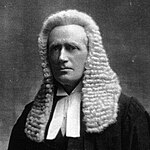Thomas Joseph Campbell
|
T. J. Campbell KC |
|
|---|---|
 |
|
| Leader of the Nationalist Party | |
|
In office 1934–1945 |
|
| Preceded by | Joseph Devlin |
| Succeeded by | James McSparran |
| Member of the Northern Ireland House of Commons for Belfast Central |
|
|
In office 1934–1945 |
|
| Preceded by | Joseph Devlin |
| Succeeded by | Frank Hanna |
| Member of the Northern Ireland Senate | |
|
In office 1929–1934 |
|
| Preceded by | Harold Barbour |
| Succeeded by | John Clements Glendinning |
| Personal details | |
| Born |
14 December 1871 Belfast, Ireland |
| Died | 3 May 1946 (aged 74) Belfast, Northern Ireland |
| Political party | Nationalist Party |
| Alma mater |
Royal University of Ireland Inns of Court King's Inn |
| Profession | Barrister, Judge |
| Religion | Roman Catholicism |
Thomas Joseph Campbell (14 December 1871 – 3 May 1946), known as "T. J." Campbell, was an Irish politician, barrister, journalist, author and Judge.
Campbell was born in Belfast on 14 December 1871. He studied at St Malachy's College and the Royal University of Ireland. He was awarded a BA in 1892, his LL.B in 1894 and an MA in 1897. In 1895, he began editing The Irish News, a local Belfast-based newspaper. In 1899, he was the Chairman of the Ulster District Institute of Journalists.
In 1900 Campbell was called to the Irish Bar (King’s Inn) and the English Bar in 1904. In 1918 he was appointed as a King's Counsel. He became a Bencher of King’s Inn in 1924. Campbell was the first Treasurer of the Bar of Northern Ireland and first Secretary of the Circuit of Northern Ireland.
A close friend of Joseph Devlin MP, Campbell was a supporter of John Redmond MP and stood for the Irish Parliamentary Party in South Monaghan at the 1918 general election. He lost the election to Sinn Féin's Sean McEntee (then in prison and later Finance Minister in the first De Valera led Government in the Irish Republic).
" A man of markedly moderate views" **, in 1929 Campbell was appointed to the Senate of Northern Ireland. At the 1931 general election, he stood unsuccessfully for the Nationalist Party in Belfast West. In 1934, he was elected to the Parliament of Northern Ireland in a by-election as Stormont MP for Belfast Central, resigning his seat in the Senate. He was elected unopposed in Belfast Central in the general elections of 1938 and 1945.
...
Wikipedia
